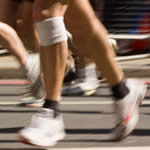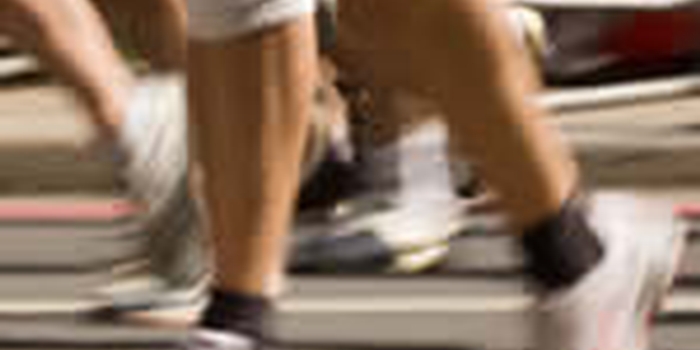9 Tips to Avoid Injuries All Season Long
![]()
June 10, 2012
by Scott Berlinger, Sports Center at Chelsea Piers
Now that you have planned your races for the season and started your training, it is important to make sure that you don't ruin all your hard work and investment by getting injured.
Many an athlete gets within weeks of competition only to get hurt. Below are nine tips to staying healthy all race season.
1. Pay Attention to Your Equipment
In triathlon training, the two pieces of equipment that are most important to watch are your bike and your running shoes. Your bike will need new tires every season. Be sure to check tire air pressure and brake pads regularly. And of course, it is critical to have a good bike helmet to avoid serious injury in the case of a fall.
The most important equipment for the run is your shoes. Be sure to change out your shoes every 400 miles or three to four months. Flat running shoes are a quick way to aggravate your back, knees, hips and more.
2. Strength Train During the Season
Running, swimming and biking mainly focuses on the quads, gluts, core, pecs, back and triceps. In order to avoid injuries, particularly as the mileage increases, it's important to strength train all of the muscle groups. This will help with muscle balance throughout your body. Also, keeping the muscles strong will take some of the pounding off of the joints.
3. Use a Foam Roller
The most important piece of stretching equipment you can own is a foam roller. Foam rolling helps to roll out knots in muscles and serves as a sort of deep tissue massage that you can do on yourself. Be sure to hit IT bands, your lower back and your calves. Foam rolling should be done after stretching.
4. Get a Massage
Sports massages are critical to muscle recovery. A trained sports massage therapist can identify and work out any knots of tightness that may crop up. Sports massage should be done as much as once a week. Obviously this can get expensive. At the very least, schedule a sports massage after every race.
5. Find Some Coaching
An experienced coach can help create and walk you through workouts. You don't want to train either too hard or not enough for a race—this is a quick way to get hurt pre-race or during the race. They can also be a great help keeping you motivated and troubleshooting.
6. Listen to Your Body
If you have tingly toes when you run or a stiff neck when you bike, don't ignore those symptoms. Go to your coach and get some advice on what's happening. Too often, small problems become big or training gets tedious when it doesn't have to.
7. Stick to a Healthy Diet
Pay attention to your diet. Not fueling yourself correctly or overeating can lead to real problems—dehydration, anemia, etc. You need to be sure to get enough protein and iron to allow your body to recover. Food is the fuel that helps you compete. Bad fuel can lead to bad results.
8. Try an Ice Bath
Ice baths should be done after every long workout. Ice naturally reduces swelling and aids muscles in healing.
9. Don't Ignore Rest
Plan a day of rest once a week into your training schedule. No running, biking, swimming or strength training. Your body needs a day to recover. It will not hurt your performance, but will actually help it and is critical in muscle recovery.
Scott Berlinger is a USA Triathlon Level 2 coach and a long-time Elite Level trainer at the Sports Center health club at Chelsea Piers. He led the Full Throttle Endurance Racing team, which makes its home at the Sports Center at Chelsea Piers, to the USA Triathlon National Team Victory the past three years and has also led the team to two consecutive NYC Triathlon wins (2008 and 2009).

